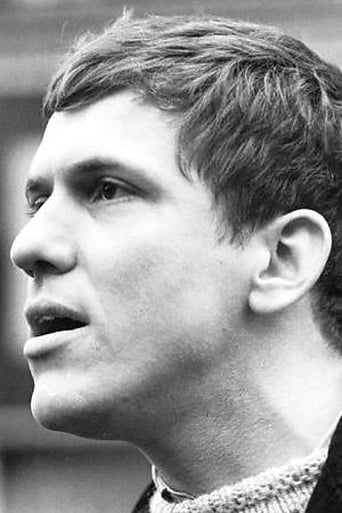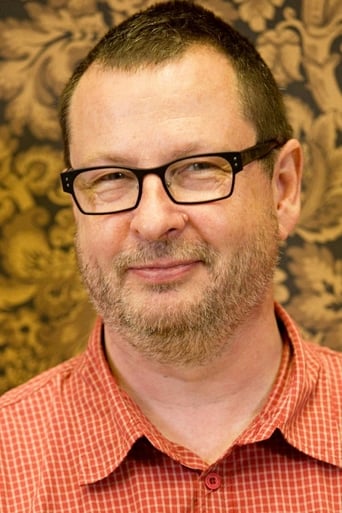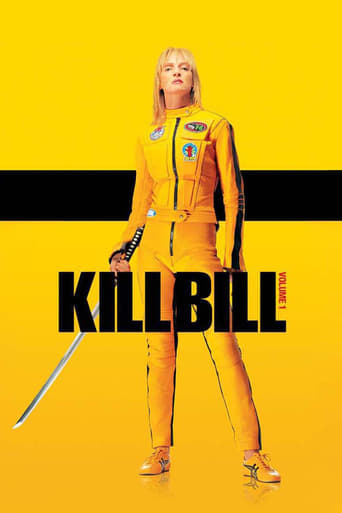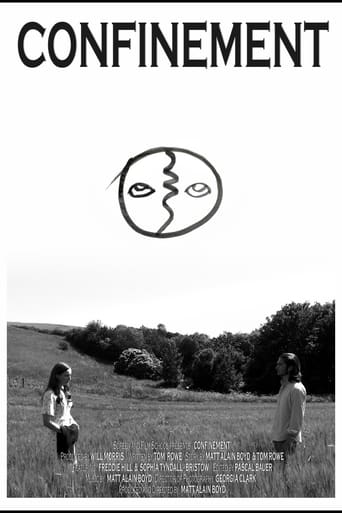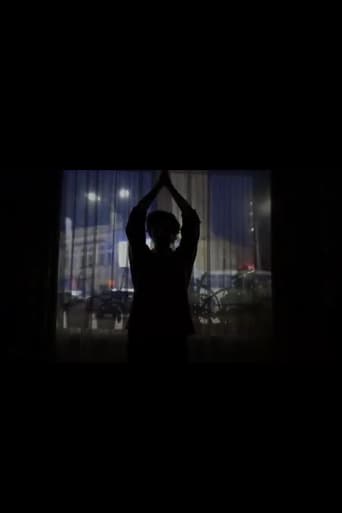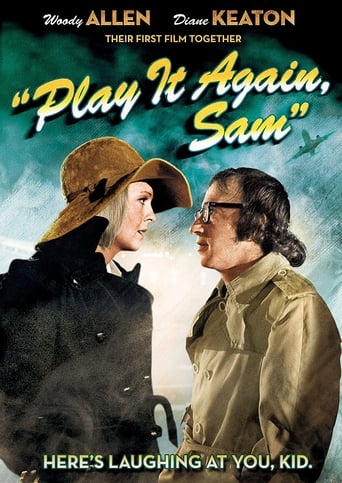
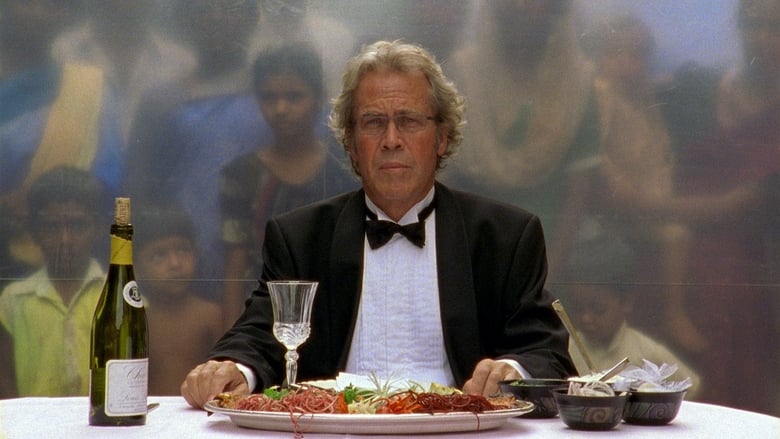
The Five Obstructions (2003)
Lars von Trier challenges his mentor, filmmaker Jørgen Leth, to remake Leth’s 1967 short film The Perfect Human five times, each with a different set of bizarre and challenging rules.
Watch Trailer
Cast


Similar titles
Reviews
The Five Obstructions is a one-of-a-kind film, but one that might be familiar to anyone that is in a school of some kind for an art-form. You know the kind: you'll have a teacher look at something you did, and say 'it was not done as to how I said it should be', and give a grade accordingly or tell you to do it again. Lars von Trier is running the school of sorts in The Five Obstructions, and his student, aptly enough, is one of the people who made him want to become a director: Jorgen Leth, an experimental/avant-garde director whose film, artistically mesmerizing and pretentious The Perfect Human, is put to a test. Or rather, von Trier tests himself, I suppose, by testing his mentor: remake the film five times, based on 'obstructions' that are set up.In other words, it's a bit like the Dogme 95 school in action, only not really in that it's not Dogme 95 rules. It's rules that von Trier makes for Leth, a perfectly pleasant and dedicated artist, in order for him to tap deeper into himself, to find something in his art that isn't really there. The rules are outrageous and intriguing: make the film with only 12-frames-per-cut in Cuba and with no set, and make the film again as... a cartoon (both filmmakers hate cartoons, and it also is meant to give Leth a sense of total control... to be sloppy). Lastly, we see von Trier's own obstruction, a film with Leth's name as director and narration reading a letter to 'Silly von Trier', that is not great as a short by itself but does wrap the film around and sum it up very nicely and completely - whose really following the rules, the defender or the attacker? Who reveals himself more in this sort of "chess-match" that is always jovial and done in the spirit of creating film? No other documentary I can think of shows filmmakers like this in the process of creating. Leth is perfectly willing to go along with von Trier, even as he sees it, if only at first, like a punishment of some sort to do the Cuban film with only 12-frame splices. Von Trier, on the other hand, always is dissatisfied, but it is for him like a therapy session as opposed to just a film challenge. He's testing himself much more, arguably, than he is testing Leth, because he is the one coming up with these rules, that it's about what he sees in the film from Leth, putting cards on the table. After seeing Antichrist, a film that I didn't respond to favorably, I can at least understand the man who made it: Von Trier will provoke himself first, and is intentionally wanting films to be sloppy and crude and even just crap, since that's how he deals with the personality crisis of an artist. Leth, meanwhile, is sharp and calm and cool, and when given 'Complete Freedom' in an obstruction comes up with a totally free-form version. Is the distance still there that von Trier so desperately wants his mentor to break? It's a fascinating game and search into the artistic soul, but it's also massively entertaining to see these two filmmakers- one who is notorious as a provocateur while the other will be seen by many for the first time in a film, or his film Perfect Human for that matter- dig deeper into the nuts and bolts of process, of what is at stake with where you film, who you film, what means in the technology. It's also very funny, just seeing von Trier in his quietly menacing way about this artistic fellow Leth (he mentions, like a comic-book villain, that he is an "expert" on Leth and knows him better than he knows himself), and seeing Leth in his own process is fascinating too, how more professional he is but also, like his pupil and challenger, willing to take risks. And the films themselves that are remade, arguably, are better and more wildly imaginative than the original was (my favorites were the Cuban and animated one, though the Bombay film held its own elusive charm).Not everyone will be thrilled with it- some may begrudge von Trier for putting someone he admires so into such a tight spot that he has to creatively get out of- but those who respond to it should find something that speaks to them. Hell, it may even make filmmakers take on obstructions of their own. Or, at least, people can know what it's like for Lars von Trier to make a film, with only seeing one of them directly. Amazing.
Imagine making a stylish sexy film about a Plain Jane. That's the feeling I got watching the 90 minute, 2004 film The Five Obstructions, jointly made and produced by Danish filmmakers Jørgen Leth and Lars Von Trier. Ostensibly, the film is about Trier's challenge to noted documentarian Leth, who seems to have been Trier's mentor, if not idol, in film school, to somehow remake a twelve minute film of his from 1967 in five new ways. That black and white film, The Perfect Human (or Det Perfekte Menneske), is typical of avant-garde films of the day- aseptic, poseur, minimalist, bereft of depth- both in Europe and in America- especially the Andy Warhol Factory. While not a great nor profound film, for it has pretentiously bad pseudo-poetry being read over images of an attractive Danish man and woman posing as perfect humans, the original film does have a certain earnest power, the sort only young artists seem to bring to their work. Flash forward a third of a century, to 2000, and Trier is issuing a challenge to Leth, sort of a less somber Werner Herzog in temperament, to remake the film five different ways, each way, though, with an 'obstruction', really only a limitation. Leth accepts the challenge for what it seems to be, seemingly unaware that Trier is actually doing a documentary about Leth and his creative process. each obstruction is designed to show off Leth's presumed genius at getting around the obstruction.On the downside, the film would have worked better if the original and the subsequent films had been shown in their entirety, and not only in excerpts. Still, it's a synergistic film that is not postmodern, despite its pretensions. Nor is it truly deconstructive. Instead it's self-exploration using the art itself, which is, despite claims, the essence of such a venture. Also, as filmic memoir, it makes the viewer take for granted all its assumptions of the men's relationships. The editing, by Camilla Skousen and Morten Højbjerg, especially in the fifth obstruction, is excellent.
Jorgen Leth and Lars von Trier's Five Obstructions is, in a certain sense, collaboration as confrontation. The restrictions von Trier places on Leth are designed to frustrate the latter's inclination to distance, stylization, and abstraction (tendencies antithetical to the naturalism, spontaneity, and transparency of the Dogme school), and at least one restriction ("complete freedom") is explicitly intended as punishment for Leth's too-loose interpretation of a previous directive. Belying this atmosphere of conspiratorial coercion is the documentary footage of the meetings between the two directors, where their interaction is friendly and warm, not to say giddy. But other footage of Leth when von Trier is absent shows the elder director as bleak, almost stunned. In this game of flip-flopping submission and dominance, von Trier insists that Leth lower his guard (or his standards) and produce the kind of work von Trier repeatedly describes as "crap." Von Trier's not interested in art, but in therapy, as he reveals in the banal Obstruction #5, in which black-and-white documentary footage of the making of the previous four Obstructions are set as an illustrative montage to the sound of Leth's voice reading a letter to him written by von Trier, which exposes with crude and merciless sentimentality Leth's struggle with depression and von Trier's crusade to save him through the making of this film. Von Trier's mission would appear to be self-defeating, inasmuch as the brilliant flashes of ecstatic engagement that Leth displays throughout the documentary footage all occur when he has, despite von Trier's traps, continued to produce the gorgeous and intelligent cinema for which he is renowned (most notably in the very first and very best Obstruction, filmed in Cuba, which must answer the questions posed by the narrator of the original Perfect Human film, and which must contain no edit longer than twelve frames). Perhaps Leth's grimmest moment comes after he's screened his fourth Obstruction, a cartoon, for von Trier, who praises it slyly as representing the best of the best in the MTV style. Leth is clearly devastated, and we sense that he may have reconsidered his original comparison of himself with Faust and von Trier with Mephistopheles Faust, after all, did make a more or less fair exchange of his immortal soul for knowledge, while Leth has traded his own soul in order to be made a fool. While von Trier is right in saying at the outset, however, that none of the Obstructions will rival the original Perfect Human for either perfection or humanity, the collaboration yields some incredible results, not least of which is the documentation of the creative process itself. In the end, both von Trier's cruelty and his sentimentality seem suspect, and the documentary footage suddenly leaps into focus when we remember the way in which Dogme films often seem to wear the costume of the documentary or home movie. It's no fair asking to what extent the antagonism in von Trier and Leth's collaboration is actually a collusion between the directors. Regardless of how much of this film plays by Dogme's rules, however, nearly all the remakes shed a stunning illumination on the original Perfect Human and are themselves a delight.
The English title of this film - "The Five Obstructions" - makes you think of either a very complicated bowel problem or some third rate rock band. Neither image stirs much anticipation, but that is apposite. The wisdom of this film, supposedly about conceptual and technical issues in film-making, may be obvious to film historians, screenwriters and crypto-technicians, but it is entirely lost on me.It seems instead like either a conceited little tyrannical riff by von Trier, who is known as much for his immodesty and presumption as for his movies, or some mysterious insider joke, a sort of expensive parlor game, one that can only amuse von Trier, Jørgen Leth, his mentor and co-conspirator here, and a few others in the know.The whole thing is said to have been inspired by Leth's 1967 film, "The Perfect Human" (we see a few of its scenes in this film). Leth, chit-chatting with von Trier in the present, agrees to remake a particular segment of that film within the constraints of one or another rule ("obstruction") that von Trier trumps up and arbitrarily imposes.This is done five times, i.e., five shorts are created within this film, each using one of the five different constraints. These are, in turn: (1) no edit can be longer than 12 frames (i.e., that's the constraint for the first short Leth is to make); (2) the film must be shot in a miserable environment (in Bombay as it turns out); this, von Trier says, is to pose an ethical challenge; (3) the film must be shot in a setting of complete freedom, whatever that means; this time Brussels is chosen, though I was unaware that that city was known for its wild abandon; (4) the film must be animated, i.e., rendered in a cartoon form; and (5) the film is composed of Leth reading aloud a letter previously composed by von Trier for Leth, though the letter is framed as though it were vice versa, i.e., written by Leth to von Trier.The best part is the animated segment, using a technique producing images not unlike Richard Linklater's in "Waking Life," maybe better. Also pretty amusing is the first sequence, showing various rapidly shifting poses of a (Cuban?) man smoking a cigar. The rest is a colossal bore. (In Danish, English, French & Spanish) My rating: 5/10 (C). (Seen on 05/2/05). If you'd like to read more of my reviews, send me a message for directions to my websites.


